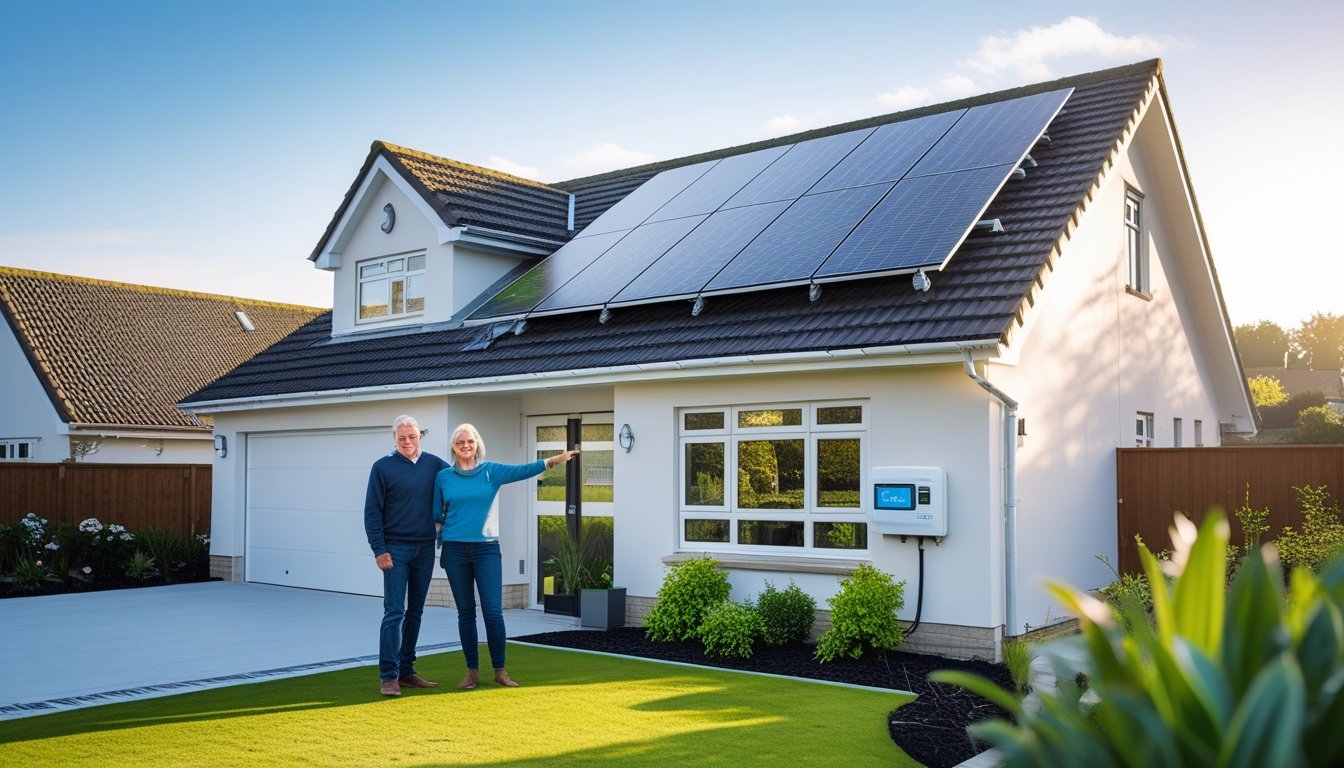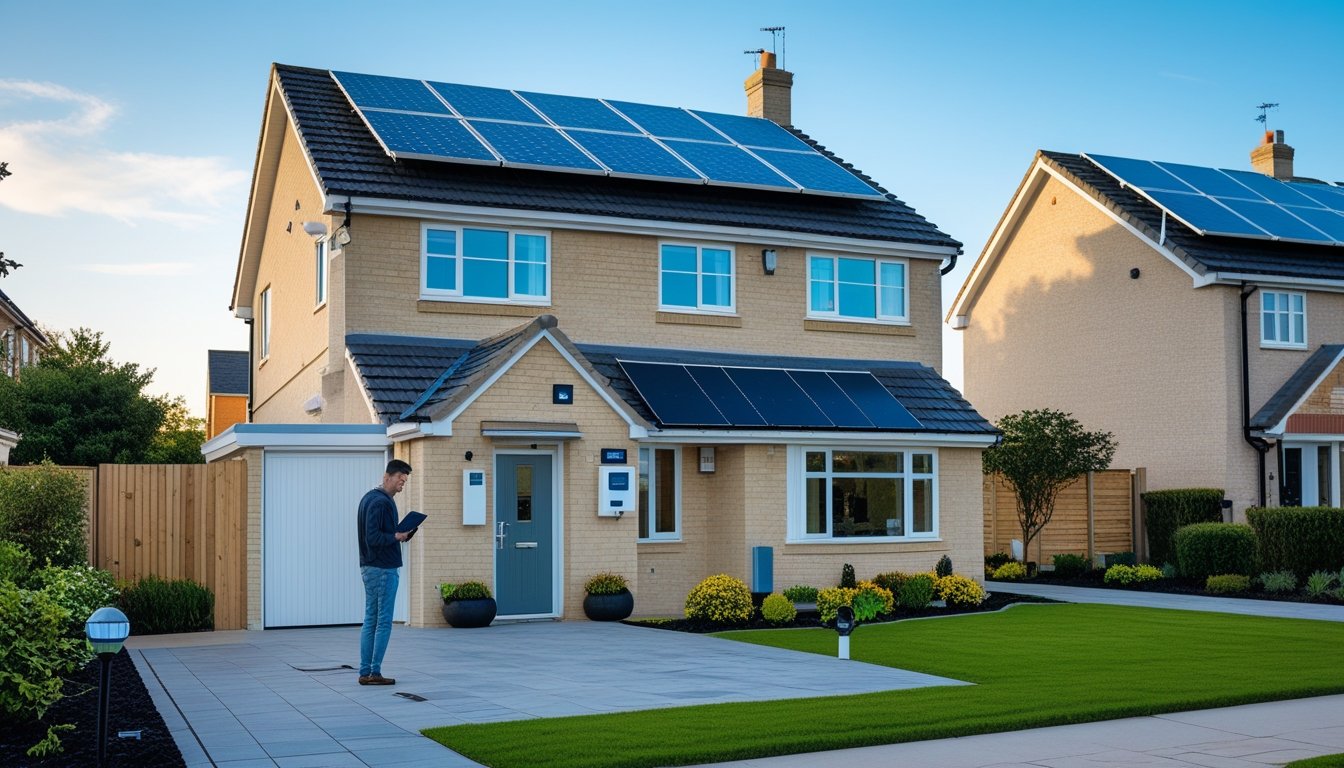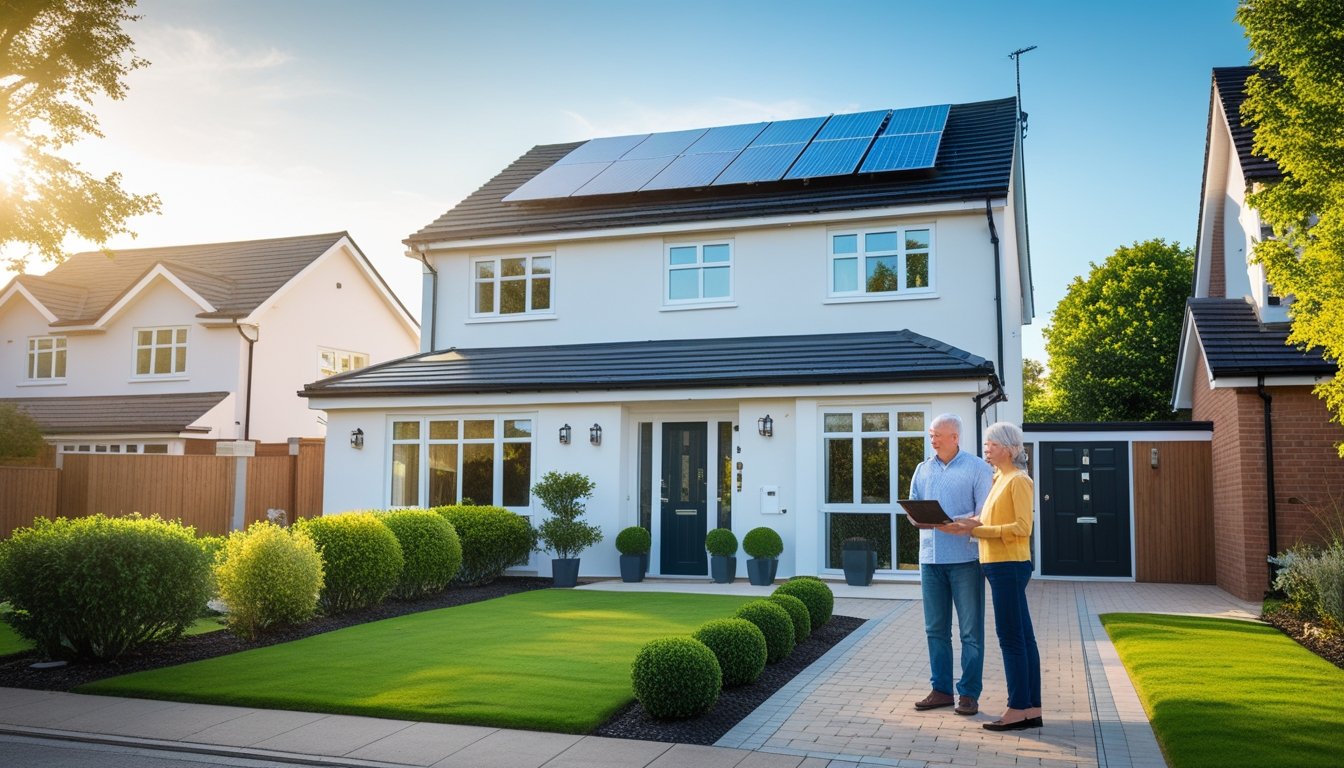Late updated: 10 Jul 2025 09:07
Written by: Eleanor Hartman
Cost-Effective Energy Solutions For UK Homeowners: Saving Money and Boosting Efficiency
In today's economy, the rising cost of living is a concern for many UK homeowners. With energy prices soaring, finding effective ways to cut down on expenses is essential. There are practical and affordable options available that can significantly reduce energy bills, making our homes more eco-friendly and cost-effective. By tapping into renewable energy sources and employing efficient home upgrades, we have the power to transform our energy consumption.

Many UK homeowners are turning to sustainable energy solutions to combat high energy costs. Introducing small changes, like improved insulation and smart technology integration, can make a big difference. These strategies not only reduce expenses but also contribute to a more sustainable environment, aligning with national goals for greener energy consumption.
Exploring the landscape of renewable energy technologies presents viable opportunities for households seeking long-term savings. Incentives and government-backed schemes add an extra layer of affordability, allowing us to make investments that pay off in the future.
Key Takeaways
- Cost-effective options can reduce energy bills and boost home efficiency.
- Integrating renewable energy and efficient upgrades transforms consumption.
- Government schemes make sustainable solutions more accessible.
Key Cost-Effective Energy Solutions for UK Homeowners

In the UK, reducing energy bills is a priority for many homeowners seeking sustainable living options. Effective strategies include enhancing energy efficiency, adopting solar systems, and integrating battery storage to increase energy independence and sustainability.
Improving Energy Efficiency for Immediate Savings
Improving energy efficiency is one of the most accessible methods for homeowners to lower energy costs. Simple actions like sealing gaps, enhancing insulation, and upgrading to LED lighting can lead to immediate savings.
The ECO4 scheme provides support and incentives for these improvements, making them more affordable. Upgrading to energy-efficient appliances not only reduces energy usage but also contributes to a lower carbon footprint. Smart thermostats can regulate heating and cooling efficiently, adjusting to our preferences and reducing waste.
Incentives and rebates from the government further ease the financial burden, encouraging us to embrace these improvements. Investing in energy efficiency offers a swift return on investment through reduced energy bills and increased home comfort.
Adopting Solar Energy Systems
Solar panels present a powerful solution for homeowners seeking renewable energy. They harness solar power, converting sunlight into electricity, which directly reduces our reliance on traditional energy sources.
The initial investment cost has decreased considerably, making solar systems more affordable. Many homeowners see a rapid reduction in energy bills once the system is in place. The feed-in tariff scheme previously available, has been replaced by the Smart Export Guarantee (SEG), allowing us to sell excess electricity back to the grid, generating additional income.
By adopting solar panels, we drastically cut our carbon footprint, utilising an abundant and clean energy source. Plus, they add value to our properties, making solar energy an attractive long-term investment.
Utilising Battery Storage for Greater Independence
Incorporating battery storage systems into our energy solutions can significantly enhance energy independence. Storing excess solar power allows us to use it during peak hours, reducing reliance on the grid.
This not only lowers costs but also improves energy security. Many modern battery systems are compact and efficient, integrating easily into existing solar setups. Advanced options like Tesla Powerwall and LG Chem batteries provide seamless integration and reliable performance.
By reducing our dependence on external energy sources, we can achieve greater stability in energy costs. The environmental benefits include reducing strain on public grids and promoting a sustainable, renewable energy future.
Implementing Renewable Energy Technologies at Home
As we focus on implementing renewable energy technologies in the UK, selecting the appropriate systems and components becomes essential. From solar panels to heat pumps, each option poses distinct advantages and considerations. Let's explore the critical elements of solar energy systems, how they integrate into home environments, and opportunities to benefit financially through exported electricity.
Choosing the Right Solar Panels and Solar PV
Deciding on the correct solar panels involves evaluating factors like efficiency, durability, and cost. Photovoltaic (PV) panels are widely popular, converting sunlight into electricity. Their performance depends on the material, usually monocrystalline or polycrystalline silicon. While monocrystalline panels are more efficient, polycrystalline options offer a cost-effective solution.
Installation angle and positioning significantly impact energy production. Tilt angles should be optimised for maximum sun exposure. Solar PV systems might integrate with battery storage to reduce reliance on the grid, enhancing our energy independence. By choosing panels that align with our energy needs and environmental goals, we create a sustainable home setup.
Maximising Benefits with Solar Inverters and Power Optimisers
Solar inverters play a pivotal role, converting DC power from panels into AC electricity for home use. Efficiency ratings and compatibility with our solar array should guide our choice. String inverters are common, yet microinverters offer enhanced performance under shading conditions.
Power optimisers can further enhance system efficiency by allowing individual panel optimisation. They mitigate issues caused by partial shading, maximising energy output. Coupling inverters with battery storage systems helps manage energy flow, storing surplus power for later use. This setup not only facilitates better energy utilisation but also contributes to lower electricity costs.
Integrating Heat Pumps into Your Home
Heat pumps offer a renewable alternative to conventional heating methods. They extract heat from the air or ground and transfer it indoors. Air-source heat pumps and ground-source heat pumps cater to different property types and budgets. Air-source models are generally more adaptable and cost-effective.
The effectiveness of heat pumps relies on good home insulation and an appropriate heating system. Combining heat pumps with a solar system could lead to significant energy savings. It's crucial to evaluate installation feasibility and potential government incentives. Utilising heat pumps contributes to reducing our carbon footprint and lowers heating expenses.
Exporting Renewable Electricity: Navigating the Smart Export Guarantee
The Smart Export Guarantee (SEG) enables us to export surplus electricity generated by our renewable systems back to the grid. This provides a financial incentive, enhancing the overall value proposition of our investment. Participating in the SEG requires us to have an accredited smart meter installed.
The rates for exported electricity vary based on our provider and tariff. It’s wise to compare and identify the most lucrative offerings. The SEG encourages the adoption of renewable energy solutions in our homes and supports broader energy goals by promoting green energy usage. By engaging in this scheme, additional revenue streams enhance the long-term benefits of our renewable installations.
Frequently Asked Questions

In the UK, several government schemes and grants are available to support energy-efficient home improvements. Homeowners seeking to reduce energy consumption often have questions about accessing these resources and enhancing their properties’ efficiency.
What types of government grants are available for energy-efficient home improvements in the UK?
UK homeowners can access grants such as the Green Homes Grant, which provides financial support for installing energy-saving measures like insulation or low-carbon heating systems. Another option is the Energy Company Obligation (ECO4) Scheme, requiring energy suppliers to help fund these improvements.
How can I apply for a Home Upgrade Grant to improve my property's energy efficiency?
To apply for a Home Upgrade Grant, homeowners should visit the relevant government website. It's important to check eligibility, prepare necessary documentation, and follow the prescribed application process to ensure a smooth experience.
Are there any schemes offering free solar panels to UK homeowners?
In some cases, schemes may offer free solar panels under a "rent-a-roof" arrangement. This typically involves allowing a company to install panels on your home at no cost while they benefit from selling excess energy generated.
What steps should I take to improve my home's Energy Performance Certificate (EPC) rating?
Enhancing a home's EPC rating involves implementing measures such as installing energy-efficient insulation, upgrading windows and doors, or adding renewable energy sources like solar panels. These steps help reduce energy consumption and increase the property's value.
How does the Energy Saving Trust support UK homeowners in reducing their energy consumption?
The Energy Saving Trust provides guidance on improving energy efficiency and reducing consumption. Their resources include advice on energy-saving products and access to financial programmes that help homeowners lower bills and minimise their carbon footprint.
Can I receive financial assistance for installing energy-efficient windows and doors in my home?
Financial assistance for installing energy-efficient windows and doors is available through programmes like the ECO4 Scheme. Homeowners might also find support via local grants, which vary by region and may require specific eligibility criteria.